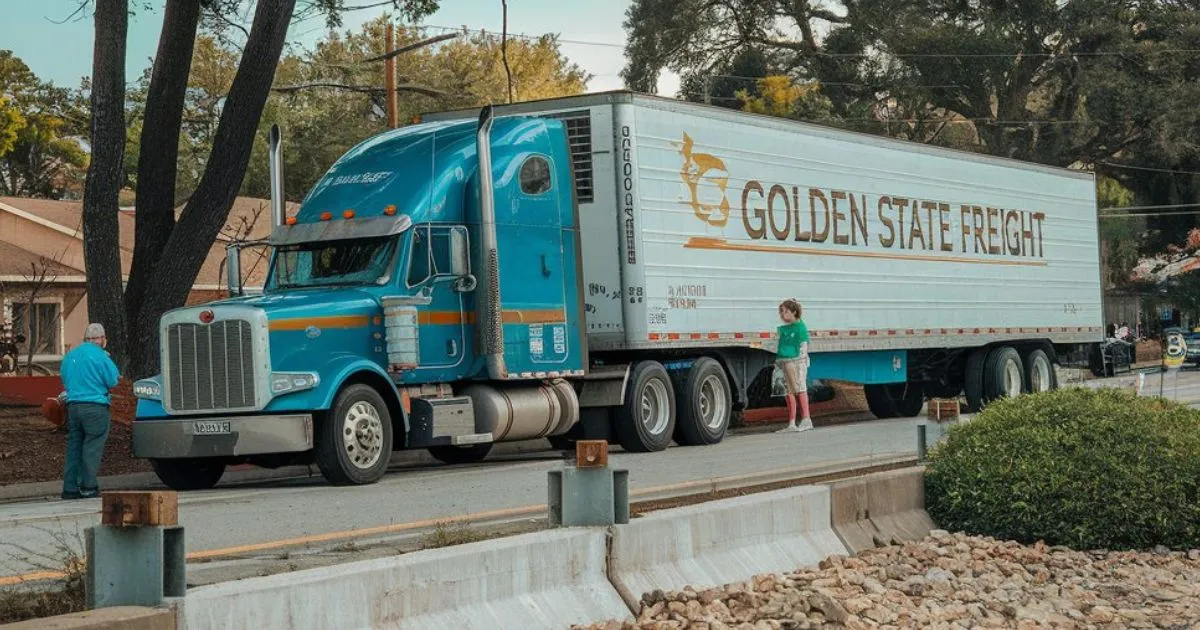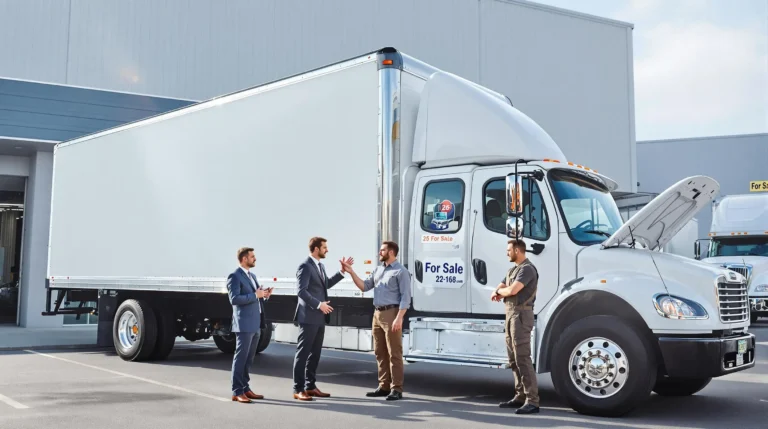10 Amazing Semi Trailer Facts That Will Revolutionize Your Trucking
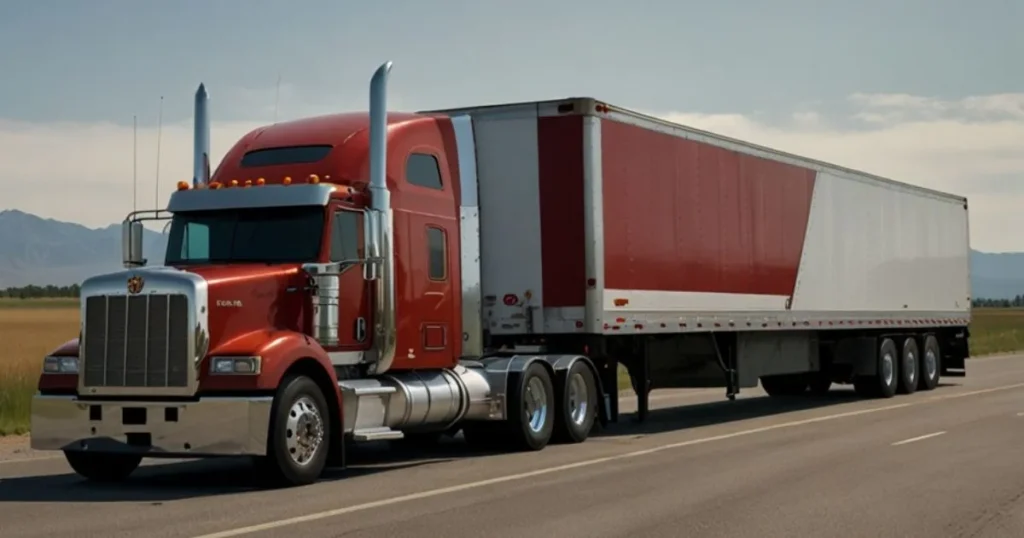
Ever wondered about the sheer size and power of the semi trailers you see on the highways? Dive into the fascinating world of these colossal vehicles and discover what makes them the backbone of freight transportation.
Introduction
Semi trailers are a common sight on roads across the United States, playing a crucial role in transporting goods and materials. Understanding these giants of the road is essential, not just for truck drivers but for anyone interested in how products move from one place to another. In this comprehensive guide, we’ll explore the dimensions, types, and specifications of semi trailers, shedding light on their significance in the logistics industry.
Understanding Semi Trailer Dimensions
When it comes to semi trailers, size matters. The dimensions of these vehicles are carefully regulated to ensure safety and efficiency on the roads.
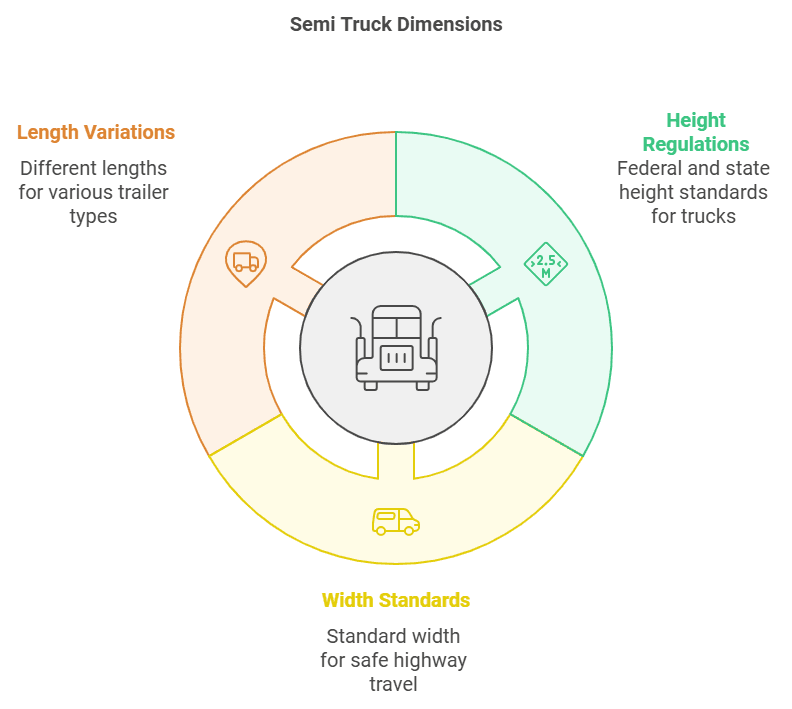
How Tall Is a Semi Truck?
The height of a tractor trailer truck typically ranges from 13.5 to 14 feet. This height limit is enforced to prevent collisions with overpasses and bridges. It’s fascinating to note that while the federal regulation sets the maximum height at 14 feet, some states may have slightly different standards. Truck height is a critical factor that drivers must always consider, especially when navigating through areas with lower clearance levels.
Semi Truck Size and Width
So, how wide is a semi? The standard width of a semi truck is about 8.5 feet (102 inches). This width allows for ample cargo space while still fitting within lane guidelines on highways. The width of standard trucks ensures that vehicles can pass each other safely without encroaching on adjacent lanes.
Semi Truck and Trailer Length
The length of a semi trailer can vary depending on its type and purpose. On average, a semi trailer is about 48 to 53 feet long. When combined with the tractor unit, the semi truck and trailer length can reach up to 70 to 80 feet. This truck length in feet is substantial, making maneuvering and parking these vehicles a skilled task.
Types of Semi Trailers and Their Specifications
The type of semi trailer used can depend on the cargo being transported. Different trailers have unique features tailored to specific freight needs.
Common Types of Trailers
- Dry Van Trailers: Enclosed trailers used for general cargo.
- Refrigerated Trailers (Reefers): For transporting perishable goods at controlled temperatures.
- Flatbed Trailers: Open trailers ideal for oversized loads or equipment.
- Tanker Trailers: Designed to carry liquids like fuel or chemicals.
Understanding the semi trailer truck specifications for each type is essential for compliance and safety. For instance, oversized loads on flatbed trailers require special permits and precautions.
Specialty Trailers
Some cargo requires unique trailers, such as lowboy trailers for heavy machinery. The choice of trailer depends on the type of goods being transported. For drivers looking to expand their expertise, exploring different trailers can open up new opportunities in the trucking industry.
Regulatory Considerations for Semi Trailers
Compliance with regulations is paramount in the trucking industry. Weight, height, and length limits are established to ensure road safety.
Vehicle Weights and Weight Limits
The gross vehicle weight rating (GVWR) determines the maximum operating weight of a truck, including its cargo. In the U.S., the typical weight limit for a standard tractor-trailer is 80,000 pounds. Exceeding these weight limits can result in hefty fines and pose safety risks.
Height and Length Restrictions
As mentioned earlier, the height limit is generally 14 feet. Trailer length is also regulated, with most states allowing up to 53 feet for trailers. Understanding these limits helps in route planning and avoiding potential obstacles.
Federal Regulations
Compliance with federal regulation and state laws is essential for all commercial vehicle operators. These laws ensure that trucks are safe for the road and that infrastructure like bridges and roads are protected from damage due to overweight or oversized vehicles.
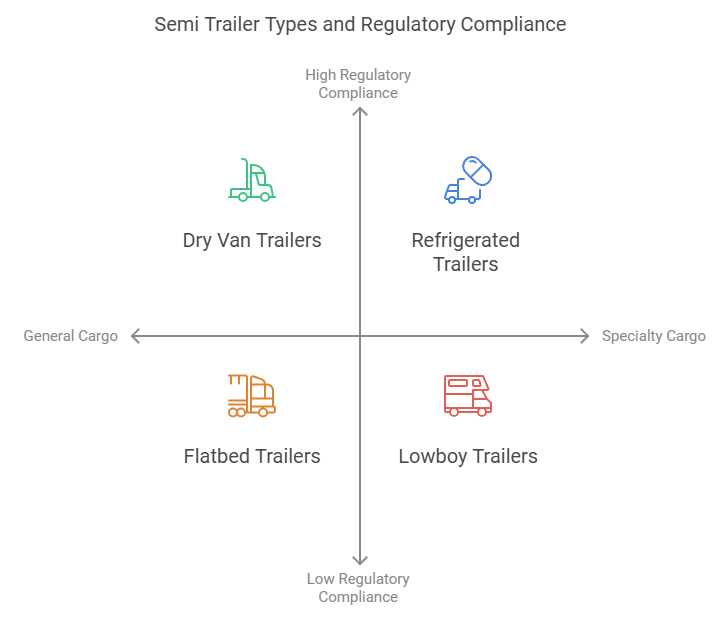
The Life of a Truck Driver
Behind every semi trailer is a skilled truck driver who ensures that goods reach their destination safely.
Challenges and Rewards
Driving a semi trailer requires expertise and patience. Navigating a long truck trailer through various terrains and traffic conditions is challenging. However, the profession offers the reward of travel and playing a critical role in the economy.
If you’re considering a career in trucking, check out Is Truck Driving a Good Career? for insights into the industry.
Types of Cab Configurations
- Sleeper Cab: Equipped with sleeping quarters for long-haul drivers.
- Day Cab: Lacks a sleeping area, suitable for short trips.
Choosing between a sleeper cab and a day cab depends on the type of trailer being hauled and the distances covered.
The Impact of Semi Trailers on Transportation
Semi trailers are integral to the movement of goods, impacting various industries and the overall economy.
Transporting Goods Across the Nation
From food to construction materials, semi trailers are essential for transporting goods nationwide. They connect manufacturers with consumers and support industries like retail, agriculture, and technology.
For those interested in the evolving landscape of transportation, comparing electric vehicle options like Rivian vs. Tesla can offer a glimpse into the future of commercial vehicles.
Technological Advancements
The trucking industry is not static. Innovations in design and technology are improving fuel efficiency, safety, and sustainability. The advent of commercial trucks with alternative energy sources is just around the corner.
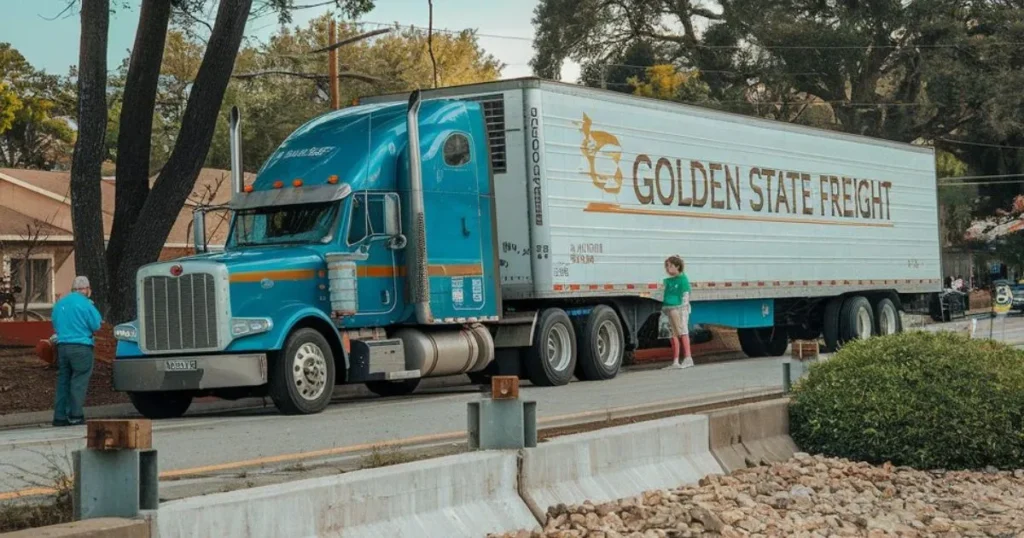
Conclusion
Understanding the intricacies of semi trailers—from their dimensions to their role in logistics—highlights their importance in our daily lives. Whether you’re a trucking enthusiast, considering a career as a driver, or simply curious about these massive vehicles, staying informed is the first step.
Ready to explore more about trucks and transportation? Discover Good Trucking Companies to Work For and take the next step in your journey.
External Resources
- Federal Motor Carrier Safety Administration – For comprehensive regulations on commercial vehicles.
- American Trucking Associations – Industry news and resources.
Interested in classic trucks? Check out our article on Old Chevy Trucks for a nostalgic ride!
Let me know if you would like any adjustments or further refinements to this article!
There are no reviews yet. Be the first one to write one.

